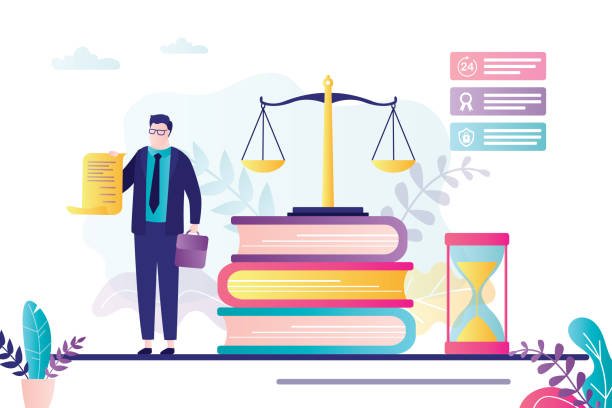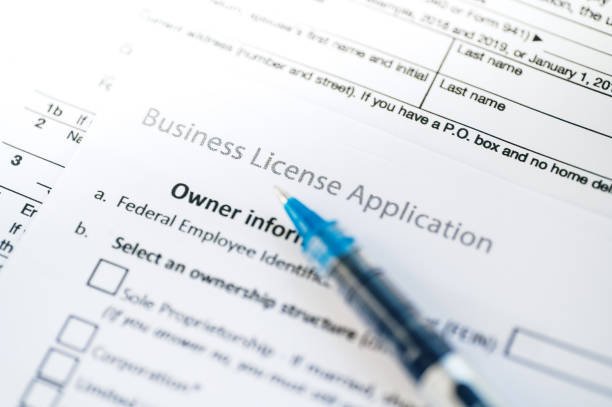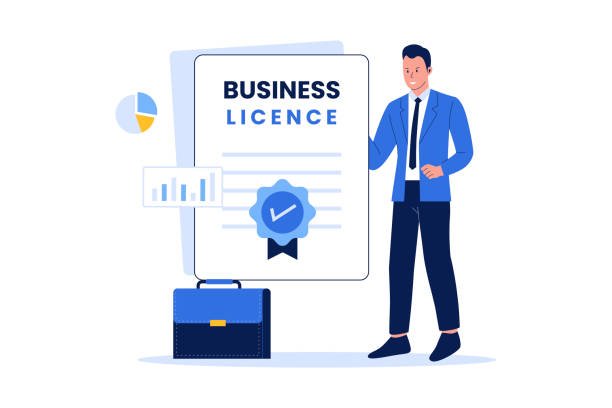do i need a business license for rental property? Get Started
The rental property business has grown significantly over the past decade, with millions of Americans now generating income from real estate investments. However, many landlords operate without fully understanding their legal obligations, particularly regarding business licensing requirements. This oversight can lead to substantial fines, legal complications, and costly business disruptions that could have been easily avoided.
Understanding whether you need a business license for your rental property isn’t just about compliance—it’s about protecting your investment and ensuring your rental business operates smoothly. The requirements vary significantly depending on your location, the number of properties you own, and how you structure your business operations.
Some landlords mistakenly believe that simply owning and renting property doesn’t constitute a “business” requiring formal licensing. Others assume that registering their property with local housing authorities is sufficient. These misconceptions can result in serious consequences, including hefty penalties and potential legal action that can jeopardize your entire rental operation.
This comprehensive guide will walk you through everything you need to know about rental property business licenses, helping you determine your specific requirements and avoid costly compliance mistakes.
Understanding Business Licenses

A business license is an official permit issued by government authorities that grants you legal permission to operate a commercial enterprise within a specific jurisdiction. For rental property owners, this license serves as formal recognition that you’re conducting business activities and are subject to relevant regulations, tax obligations, and compliance requirements.
The primary purpose of business licenses is to ensure that all commercial activities within a community meet established standards for safety, taxation, and regulatory compliance. These licenses help local governments track business operations, collect appropriate taxes, and maintain oversight of commercial activities that could impact public welfare.
It’s crucial to distinguish between a business license and other permits or licenses you might need as a landlord. A rental license or occupancy permit, for example, focuses specifically on whether your property meets safety and habitability standards for tenants. These are separate from business licenses, which address your right to operate commercially in the jurisdiction. Some areas also require specialized landlord licenses or registration with housing authorities, which again serve different purposes than general business licenses.
Many landlords need multiple types of permits and licenses to operate legally. You might require a business license to operate commercially, a rental license to ensure your property meets housing standards, and various permits for specific activities like short-term rentals or property management services.
Federal vs. State vs. Local Requirements
Federal Requirements
At the federal level, rental property owners typically don’t need specific business licenses to operate. The federal government doesn’t issue general business licenses for landlords. However, you’ll still need to comply with federal tax obligations, fair housing laws, and other regulations that apply to rental property operations.
Federal requirements primarily focus on tax compliance through the IRS, adherence to fair housing regulations under the Fair Housing Act, and compliance with other federal laws that govern rental housing. While these don’t constitute licensing requirements, they represent mandatory compliance obligations that all landlords must meet.
State-Level Requirements
State requirements vary dramatically across the country. Some states require landlords to obtain business licenses, while others have no such requirements at the state level. States that do require licensing often have specific thresholds that trigger the requirement.
For example, California requires business licenses for landlords in many municipalities, but the specific requirements depend on local ordinances rather than state-wide mandates. Texas generally leaves business licensing requirements to local jurisdictions, while New York has complex regulations that vary significantly between different regions and municipalities.
Many states that don’t require specific landlord business licenses still require general business registration if you’re operating as a formal business entity like an LLC or corporation. This registration isn’t the same as a business license but serves similar regulatory purposes.
Local Requirements
Local governments—cities, counties, and municipalities—typically have the most direct impact on whether you need a business license for your rental property. These jurisdictions often have the most specific and stringent requirements, as they deal directly with the day-to-day impacts of rental housing on their communities.
Cities like San Francisco require rental property owners to obtain business registration and licenses, regardless of the number of properties owned. The city treats rental income as business income requiring proper licensing and registration. Chicago has similar requirements, with specific licensing requirements for landlords operating within city limits.
County requirements can be equally important, particularly in areas where city and county jurisdictions overlap or where you’re operating in unincorporated areas. Some counties require business licenses for any commercial activity, including rental property operations, while others focus primarily on properties that exceed certain thresholds for number of units or rental income.
When Do You Need a Business License?

Single Property Ownership
Owning and renting a single property doesn’t automatically exempt you from business licensing requirements. Many jurisdictions consider any rental activity to be commercial business activity, regardless of scale. Even if you’re renting out a single-family home or a portion of your primary residence, you may still need to obtain appropriate business licenses.
The key factor isn’t the number of properties you own, but rather the commercial nature of your activity. If you’re regularly collecting rent in exchange for providing housing, many jurisdictions classify this as business activity requiring proper licensing.
Multiple Properties
Operating multiple rental properties almost certainly constitutes business activity requiring appropriate licensing. The threshold for “business” activity varies by jurisdiction, but most areas consider ownership of multiple rental properties to be clear business operations requiring licensing and registration.
Multiple property ownership often triggers additional requirements beyond basic business licensing. You may need specialized property management licenses, enhanced insurance coverage, and compliance with more complex regulatory frameworks designed for larger-scale rental operations.
Business Structure Considerations
How you structure your rental property business significantly impacts your licensing requirements. Operating as a sole proprietorship may have different requirements than forming an LLC or corporation for your rental activities.
LLCs and corporations typically require business registration at the state level, which often includes or necessitates business licensing at local levels. These formal business structures usually make licensing requirements more straightforward, as they clearly establish your rental activities as commercial business operations.
Partnerships involving multiple property owners also typically require business licensing, as they represent formal business arrangements for commercial purposes.
Additional Services
Providing additional services beyond basic property rental often triggers business licensing requirements, even for landlords who might otherwise not need licenses. Services like property management for other owners, maintenance services, or short-term rental operations typically require specialized business licenses.
Property management services, in particular, often require specialized licensing and bonding requirements that go beyond basic rental property business licenses. Many states have specific licensing requirements for property managers, regardless of whether they manage their own properties or properties belonging to others.
How to Obtain a Business License

Research Your Local Requirements
Start by contacting your city clerk’s office or business licensing department to understand specific requirements in your area. Most municipalities have websites with detailed information about business licensing requirements, including specific provisions for rental property owners.
Don’t assume that state or federal requirements tell the complete story. Local requirements often represent the most stringent and specific obligations you’ll face as a rental property owner. Some areas have online databases where you can search for specific licensing requirements based on your business type and location.
Gather Required Documentation
Common documentation requirements include proof of property ownership, tax identification numbers, proof of insurance, and detailed information about your rental operations. Some jurisdictions require financial statements, business plans, or other documentation that demonstrates your ability to operate responsibly.
You’ll typically need to provide information about all properties you own or manage, including addresses, number of units, and types of rental arrangements. Some areas require background checks or credit reports for landlords seeking business licenses.
Application Process
Most business license applications can be completed online or in person at relevant government offices. Application fees vary widely, from as little as $25 in some small municipalities to several hundred dollars in major metropolitan areas.
Processing times typically range from a few days to several weeks, depending on the complexity of your operation and the thoroughness of your local government’s review process. Some areas offer expedited processing for additional fees, while others have standard processing timeframes that can’t be accelerated.
Ongoing Compliance
Business licenses typically require regular renewal, usually annually or every few years. Renewal processes often require updated documentation, proof of continued insurance coverage, and payment of renewal fees.
Some jurisdictions require continuing education or training for licensed landlords, particularly in areas with complex tenant protection laws or specialized housing requirements.
Consequences of Not Having a Business License
Operating without required business licenses can result in severe penalties that far exceed the cost of proper licensing. These consequences can threaten the viability of your entire rental operation and result in significant financial losses.
Fines and Penalties
Monetary penalties for operating without proper licenses can be substantial. In City A, a landlord was fined $5,000 for operating a rental property without a valid business license, leading to a costly legal battle that ultimately cost far more than the original fine. The legal expenses and time involved in fighting the citation significantly exceeded what proper licensing would have cost.
These fines often compound over time, with penalties increasing for continued non-compliance. Some jurisdictions impose daily fines that can quickly escalate into tens of thousands of dollars for landlords who don’t address licensing violations promptly.
Legal Action and Property Shutdowns
In State B, several landlords faced legal action for failing to obtain the necessary rental licenses, resulting in court-ordered property shutdowns and significant revenue loss. These shutdowns prevented the landlords from collecting rent until they achieved full compliance, resulting in months of lost income while they navigated the legal and regulatory processes required to resume operations.
Property shutdowns represent one of the most severe consequences of licensing violations, as they directly impact your ability to generate rental income while still requiring you to meet ongoing property expenses like mortgage payments, insurance, and maintenance costs.
Professional Reputation Damage
In County C, a property manager was penalized for managing multiple rental units without the required business license, which led to a damaged reputation and loss of clients. The licensing violation became public record, making it difficult for the property manager to attract new clients and retain existing ones.
Professional reputation damage can have long-lasting impacts that extend far beyond immediate fines or penalties. In the rental property business, reputation is crucial for attracting quality tenants, maintaining relationships with contractors and service providers, and building long-term success.
Tax Complications
A landlord in Town D had to pay back taxes and penalties when it was discovered they had been operating rental properties as a business without the appropriate business license, causing major financial strain. The tax authorities treated the unlicensed operation as tax evasion, resulting in penalties and interest charges that significantly exceeded the original tax obligations.
Tax complications from licensing violations can be particularly problematic because they often involve multiple years of back taxes, penalties, and interest charges that can create substantial financial burdens for landlords.
Exemptions and Exceptions
Small-Scale Operations
Some jurisdictions provide exemptions for very small-scale rental operations. These might include landlords who rent only a single property, rent rooms in their primary residence, or generate rental income below certain thresholds.
However, these exemptions are becoming less common as local governments seek to increase oversight and tax revenue from all rental activities. Even where exemptions exist, they often come with specific conditions and limitations that must be carefully observed.
Primary Residence Rentals
Renting rooms or portions of your primary residence may be exempt from business licensing requirements in some areas. These exemptions typically apply only to owner-occupied properties where the owner lives on-site and rents to a limited number of tenants.
Airbnb and other short-term rental activities often have different rules than traditional long-term rentals, even when conducted in primary residences. Many jurisdictions have developed specific regulations for short-term rentals that may require separate licensing regardless of other exemptions.
Agricultural Properties
Rural properties used primarily for agricultural purposes may have different licensing requirements, particularly when residential rentals are incidental to farming operations. These exemptions typically apply only when rental activities are clearly secondary to agricultural use.
Temporary Exemptions
Some areas provide temporary exemptions for new landlords or during transition periods when regulations change. These exemptions typically last for specific time periods and require landlords to achieve full compliance by designated deadlines.
Maintaining Compliance
Regular Renewal Requirements
Most business licenses require regular renewal, typically on an annual basis. Renewal processes often involve updating your business information, providing proof of continued insurance coverage, and paying renewal fees that may increase over time.
Set calendar reminders well in advance of renewal deadlines, as late renewals often incur additional penalties. Some jurisdictions offer multi-year renewals that can simplify compliance and reduce administrative burden.
Staying Current with Regulatory Changes
Rental property regulations change frequently, with new requirements, modified procedures, and updated fee structures regularly implemented by local governments. Subscribe to updates from your local business licensing office and relevant landlord associations to stay informed about changes that might affect your operations.
Many areas now require additional training or certification for landlords, particularly in jurisdictions with complex tenant protection laws or specialized housing requirements. These continuing education requirements often become conditions for license renewal.
Record Keeping
Maintain detailed records of all licensing activities, including applications, renewals, correspondence with licensing authorities, and proof of compliance with ongoing requirements. These records can be crucial if questions arise about your compliance status or if you need to demonstrate your history of proper licensing.
Good record keeping also simplifies the renewal process and helps ensure you don’t miss important deadlines or requirements that could jeopardize your licensing status.
Professional Support
Consider working with local attorneys, accountants, or property management professionals who understand the specific requirements in your area. Professional support can be particularly valuable when dealing with complex regulatory environments or when expanding your rental operations to new jurisdictions.
Resources and Tools
Government Resources
Most local governments provide online resources for business licensing, including searchable databases, downloadable forms, and detailed requirement explanations. Start with your city and county websites, which typically have dedicated sections for business licensing and rental property regulations.
State business licensing offices often provide overview information and links to local requirements, even when specific licensing occurs at the local level. These resources can help you understand the broader regulatory framework affecting your rental operations.
Professional Organizations
Local landlord associations and real estate investor groups often provide detailed information about licensing requirements and compliance strategies specific to your area. These organizations frequently offer training programs, networking opportunities, and advocacy services that can help you navigate complex regulatory environments.
National organizations like the National Association of Residential Property Managers provide resources and training that can help you understand professional standards and best practices for rental property operations.
Legal and Professional Services
Consider consulting with attorneys who specialize in landlord-tenant law or real estate business operations. These professionals can provide personalized guidance based on your specific situation and help you develop compliance strategies that protect your business interests.
Accountants with experience in rental property businesses can help you understand the tax implications of business licensing and ensure your financial practices align with your licensing obligations.
Understanding How to Implement a CRM System can help you better manage tenant relationships and maintain compliance records. Additionally, exploring Business Ideas Using AI Tools might provide insights into innovative approaches for managing your rental property business more efficiently.
FAQ About do i need a business license for rental property?
Q: What happens if I don’t have a business license for my rental property?
A: Operating without the required business license can lead to fines, legal action, and even property shutdowns. Penalties vary by jurisdiction but can include substantial monetary fines, legal fees, and loss of rental income during compliance proceedings.
Q: How often do I need to renew my rental property business license?
A: Renewal frequency varies by jurisdiction, typically ranging from annually to every few years. Check with your local authorities for specific renewal requirements, as late renewals often incur additional penalties.
Q: Can I transfer my business license if I sell the rental property?
A: Business licenses are generally non-transferable. The new owner will need to apply for their own license. However, some jurisdictions allow temporary transfers during sale proceedings, so consult your local licensing authority for specific procedures.
Q: What types of rental properties require a business license?
A: Requirements vary, but typically include single-family homes, multi-unit dwellings, apartments, and vacation rentals. Some areas require licenses for any rental activity, while others have minimum thresholds for number of properties or rental income.
Q: Where can I find the application for a rental property business license?
A: Applications are usually available on your local city or county government’s website, or you can obtain one in person at the relevant government office


